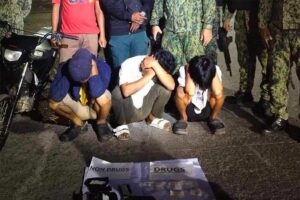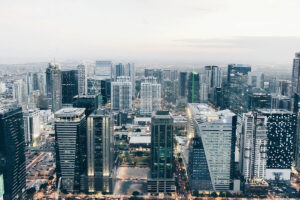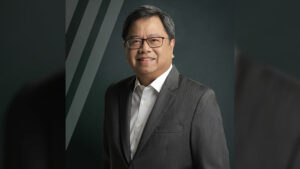Duterte, friends face uphill battle after drug testimony

By Chloe Mari A. Hufana, Reporter
FORMER Philippine President Rodrigo R. Duterte faces an uphill legal battle here and overseas after a former police colonel linked him to the systematic murder of thousands of drug suspects during his six-year term, human rights experts said.
“This means that the [extrajudicial killings] were committed upon and under his direction, National Union of Peoples’ Lawyers (NUPL) President Ephraim B. Cortez said in a Viber message at the weekend. “It will establish his accountability for the killings as a principal by inducement.”
Royina M. Garma, a long-time police officer and Philippine Charity Sweepstakes Office (PCSO) general manager under the Duterte government, told a congressional inquiry last week Mr. Duterte had ordered them to give rewards for drug war killings, patterned after the Davao model where he allegedly used police brutality to rid the city of illegal drugs.
She said she met Mr. Duterte in May 2016, when he alledly told her he needed someone who could scale the Davao template against illegal drugs nationally.
Policemen in anti-drug raids received P20,000 to P1 million for the killings, she told a House of Representatives hearing.
“Garma’s statement is proof that the killing was systematic and on a national scale and that these were carried out as a policy with full knowledge of Duterte and his top police officials,” Mr. Cortez said. “This will provide the nexus between the alleged crime against humanity and Duterte and his cohorts.”
He added that Ms. Garma’s testimony could be used as evidence in domestic and international tribunals.
The International Criminal Court (ICC) is investigating Mr. Duterte and his cohorts for alleged crimes against humanity for the deadly drug war.
Carlos H. Conde, senior researcher at Human Rights Watch, said they hope Ms. Garma’s revelation could help build the case against Mr. Duterte before the ICC.
“She implicated high-level officials such as Duterte and Senator [Christopher Lawrence T.] Go, and provided the details of how the system worked, [which] is definitely important,” he said in a Viber message. “These are leads the ICC can pursue, and could encourage other potential witnesses to come forward.”
“If anything, this should force the ICC to quicken the pace of its investigation and finally bring a measure of justice and accountability for the thousands of victims of the drug war.“
The drug war led to more than 12,000 deaths, mostly urban poor, according to Human Rights Watch. It added that at least 2,555 killings have been attributed to the national police.
Mr. Duterte’s former spokesman and lawyer Salvador S. Panelo said Ms. Garma’s claims of the so-called Davao model of payment and rewards are “pure imagination or fertile speculation.”
“No one has come out to validate the existence of such adverted Davao model during the mayorship of then Davao Mayor Duterte,” he told BusinessWorld in a Viber chat. “Garma does not claim that she was part of or an operator or executioner of the Davao model. How then could she have known of its operation, assuming it did exist?” he asked.
Josue Raphael J. Cortez, a lecturer at the School of Diplomacy and Governance at De La Salle-College of St. Benilde, told BusinessWorld in a Facebook Messenger chat that Ms. Garma’s testimony could fuel international scrutiny of the country.
Even if the Philippines withdrew from the ICC in 2018, Mr. Cortez said the tribunal “will work to find a way to continue the prosecution” given the dynamics in the international system.
“If we do not permit it, similar to President Ferdinand R. Marcos, Jr.’s pronouncements that he would not surrender Duterte to the ICC, then it will surely tarnish our reputation on the global stage,” he said via Messenger chat.
“The testimony will impact our standing in international human rights forums more because we have to be pragmatic that despite the reforms that the incumbent regime has promulgated, human rights organizations are still wary of the state of human rights in the Philippines,” he added.
The Marcos government’s inaction could weaken the country’s bid for a nonpermanent seat in the United Nations Security Council in 2027-2028, Benilde’s Mr. Cortez said.
“Linking it to consequentialism, our international allies can possibly link our inaction to us not practicing what we are supposed to advocate for,” he added.




